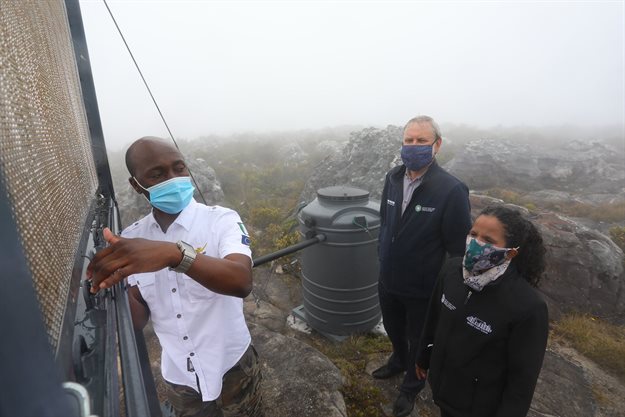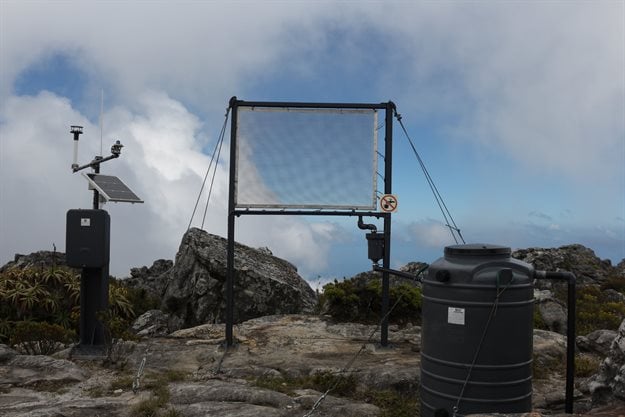
Recently, a project to investigate the potential of fog to directly or indirectly augment the water supply was also initiated.
In short, it is the collection of fog (water) from the atmosphere.
The principle of fog harvesting is based on the fact that air contains a certain amount of water vapour, originating from ocean evaporation. At higher temperatures, air contains a larger volume of water vapour than at lower temperatures. As air is transported up a gradient by wind, it interacts with colder air and is condensed into fog.
Key ingredients to the favourable formation of fog are high altitude mountains (>800m above sea level) within close proximity to the coastline. The technique has been used for decades in dry and isolated regions, such as in Chile, Peru, and Spain, though mostly managed by research/academic institutions as opposed to a municipal scale.
Various studies had been conducted on fog harvesting for domestic water supply purposes elsewhere. Most of the studies involved the use of a polymer mesh or shade cloth, kept in an upright position by stainless steel poles, that collects droplets as the wind blows the fog through the mesh. Droplets then trickle into a collection chamber.

Phase one of the pilot project, just completed, aimed to assess the suitability of the various locations on Table Mountain, and design elements for such a project and also to understand the physical and chemical complexities of fog. Factors such as the aspect, the elevation, presence of topographical obstructions in the vicinity of the site and weather conditions can affect how well a system will operate. The city’s scientific services branch is currently in the final stages of commissioning phase two of the pilot, which will assess potential yield at two experimental locations identified during phase one.
Once phase two is complete in December 2022, the city will have a much better idea if this kind of project can yield meaningful amounts of water and of good quality at a reasonable price.